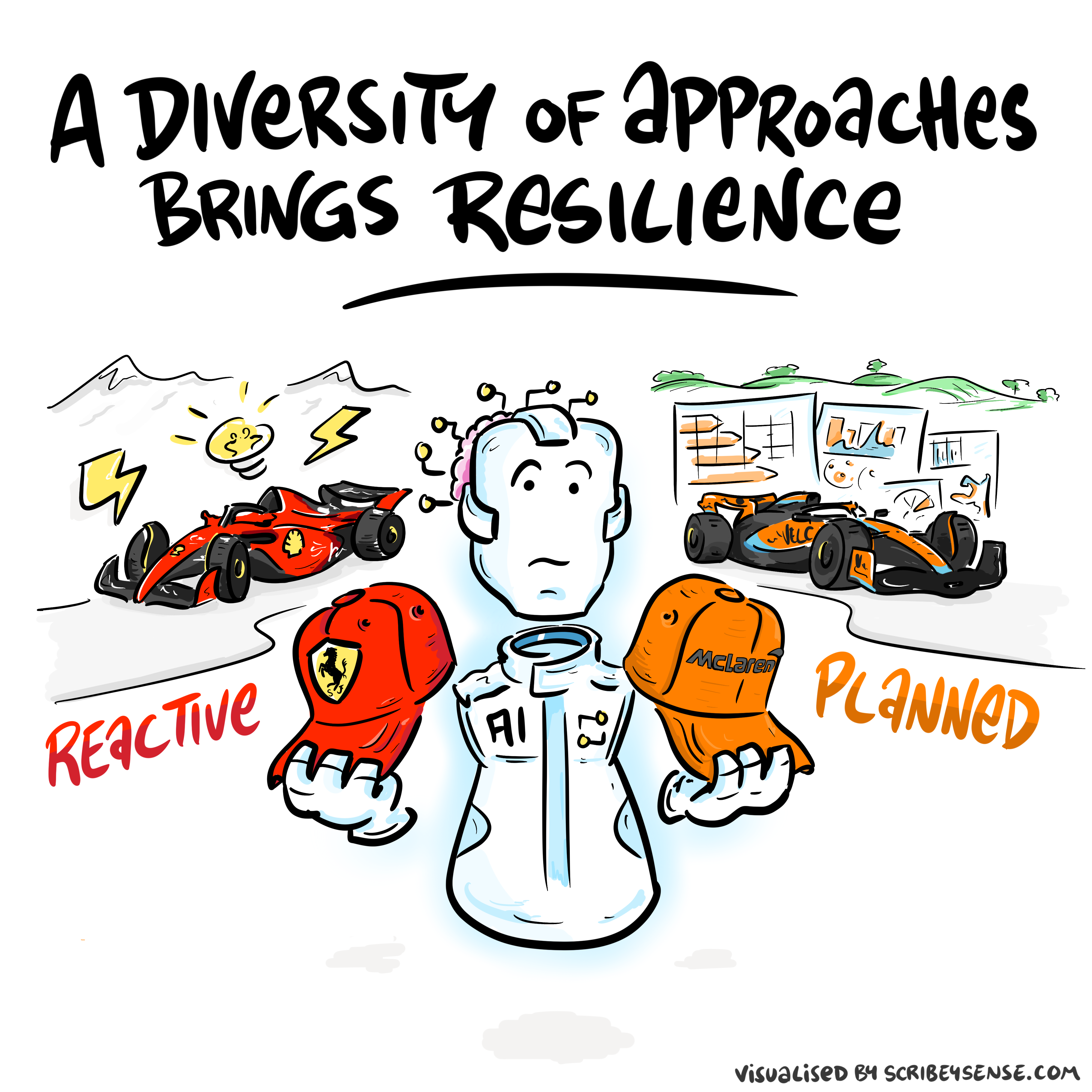Racing, Fast and Slow
The Gremlin of Uncertainty is my attempt to snap people out of the foolish things they say around AI solving problems that are fundamentally unsolvable. I think the obsession with Laplace’s Demon may stem from A Brief History of Time which suggests that the Demon, also knwon as Laplace’s determinism, was at the core of Laplace’s philosophy. But as is clear from his essay, Laplace is concerned with uncertainty and presents the demon as a straw man.
Hawking can be forgiven for not having read the full essay, his book predates the internet and the quote nicely fits with his wider programme of communicating the ideas behind the “theory of everything”.
But our continued failure to appreciate the dominant effect that uncertainty has on our decision making systems is less forgivable.
When analysing Dan Andrew’s image of the Ferrari and the McLaren, ChatGPT was gaslighting me by suggesting that the chapter makes a big connection between System 1 and System 2 thinking (alla Kahneman) and the different cultural approaches Ferrari and McLaren take to organising their racing teams. I don’t think I did that … but that’s the challenge with gaslighting I can’t be 100% sure.
However, there is an underlying important point here. Individuals and cultures can be more dominated by their reflexive or their reflective self. The arguments I make in The Gremlin of Uncertainty suggest that McLaren and Ferrari (in previous incarnations when then were dominating the F1 championship) were respectively dominated by planning and improvisational approaches. Similarly, I describe my father and brother’s approach as being respectively dominated by planning and improvisational approaches. There’s even a roundabout connection to how an individual chooses to react to a situation, with a reflexive or a reflective response. What Kahneman called slow or fast thinking.
 Dan Andrews' illustration of Chapter 6. See scribeysense.com
Dan Andrews' illustration of Chapter 6. See scribeysense.com
Without knowing how much uncertainty we are facing, we don’t know which approach is better. In practice we see across individuals, cultures, nations and species that a diversity of approaches is taken. When we are certain planning can be more efficient, but it is less robust.
A Brief History of Time is a clutural icon, but it is not about intelligence and I think it still misleads us about the limitations of mechanistic predictions. We will never be able to eliminate Laplace’s gremlin so we are all faced with the choice as to whether we are racing fast or slow.